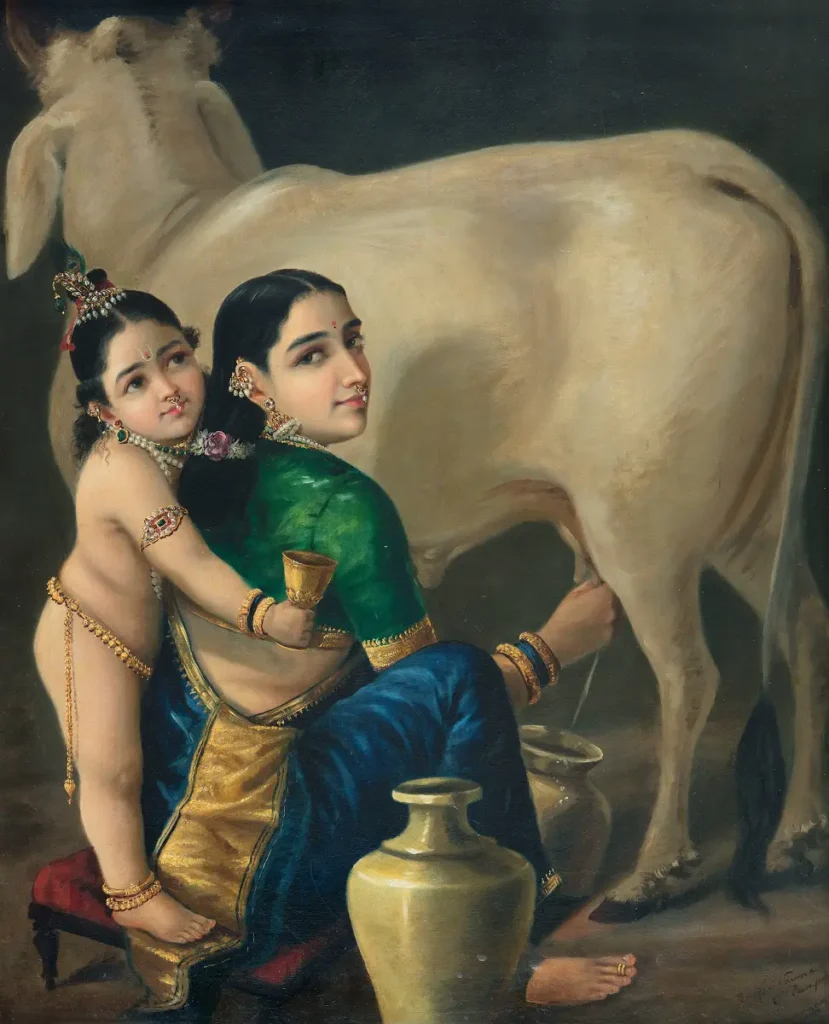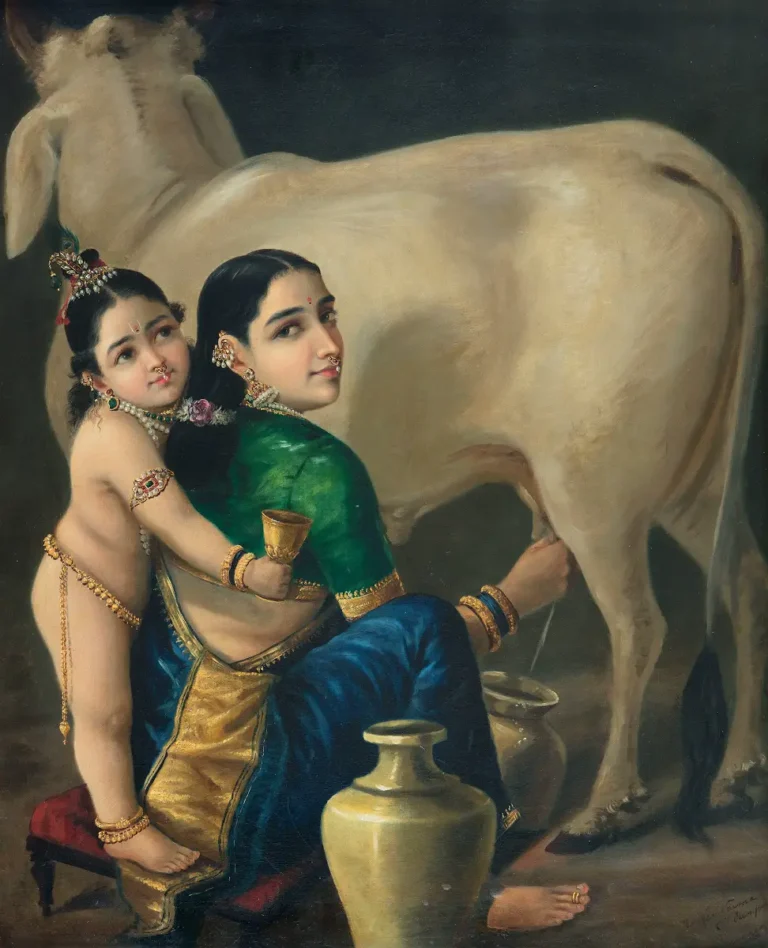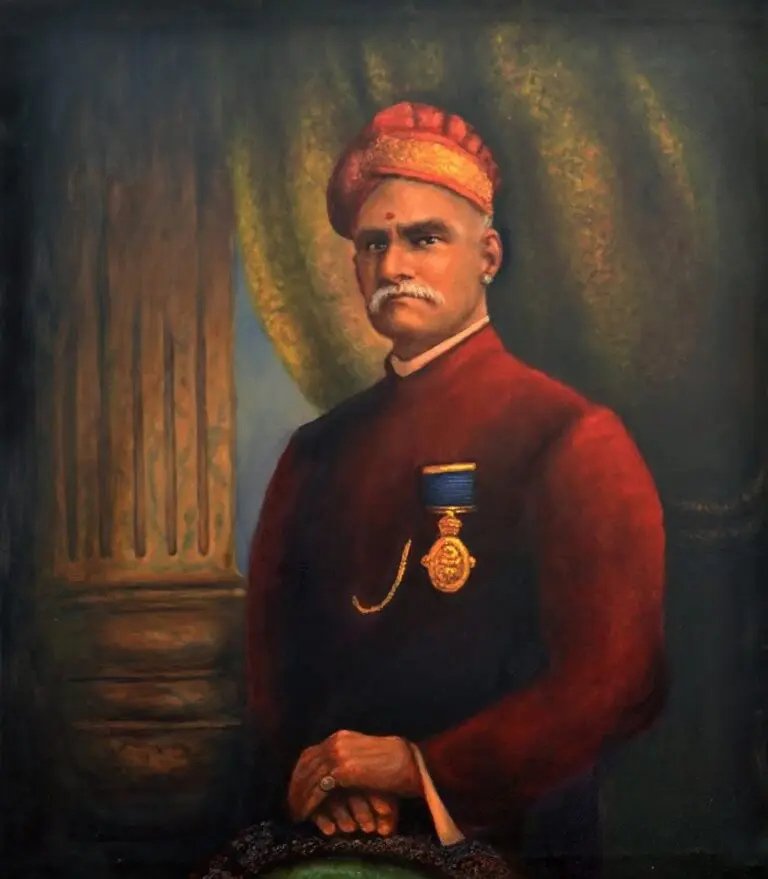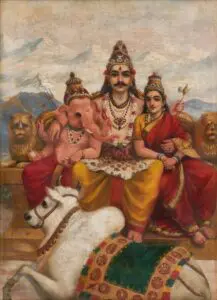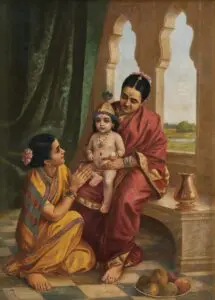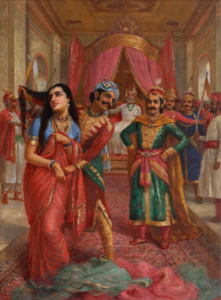Yashoda and Krishna
The painting portrays the tender relationship between Yashoda and young Krishna. In this heartwarming scene, Yashoda is seen milking the cow while Krishna, ever playful and affectionate, holds out a small cup in anticipation of her pouring him some milk. The innocent joy on Krishna’s face, paired with the calm and nurturing presence of Yashoda, captures a moment of pure maternal love. The simplicity of the scene contrasts with the deeper divine significance of Krishna’s true identity as the Supreme Lord.
Late 19th Century
About the Artwork
In the peaceful village of Gokul, as the first light of dawn breaks, Yashoda begins her daily chore of milking the family cow. Krishna, with his playful nature and an ever-growing curiosity, approaches her, holding a small cup. His eyes are wide with anticipation as he waits for his mother to pour him some milk. This scene, simple yet profound, shows the deep bond they share, a moment of love and affection, played out in the most ordinary of acts.
As Yashoda fills Krishna’s cup, she unknowingly nourishes the divine within him. Though she sees Krishna as her own son, and their interactions are filled with the love and devotion of a mother for her child, Krishna, in his divine form, embodies the Supreme Being. This moment reflects the beauty of motherhood, where the simple and pure acts of care—like feeding and nurturing—transcend into something far more sacred. Yashoda’s love, though grounded in the earthly, touches the divine, revealing the true nature of Krishna as the protector of the cosmos.




